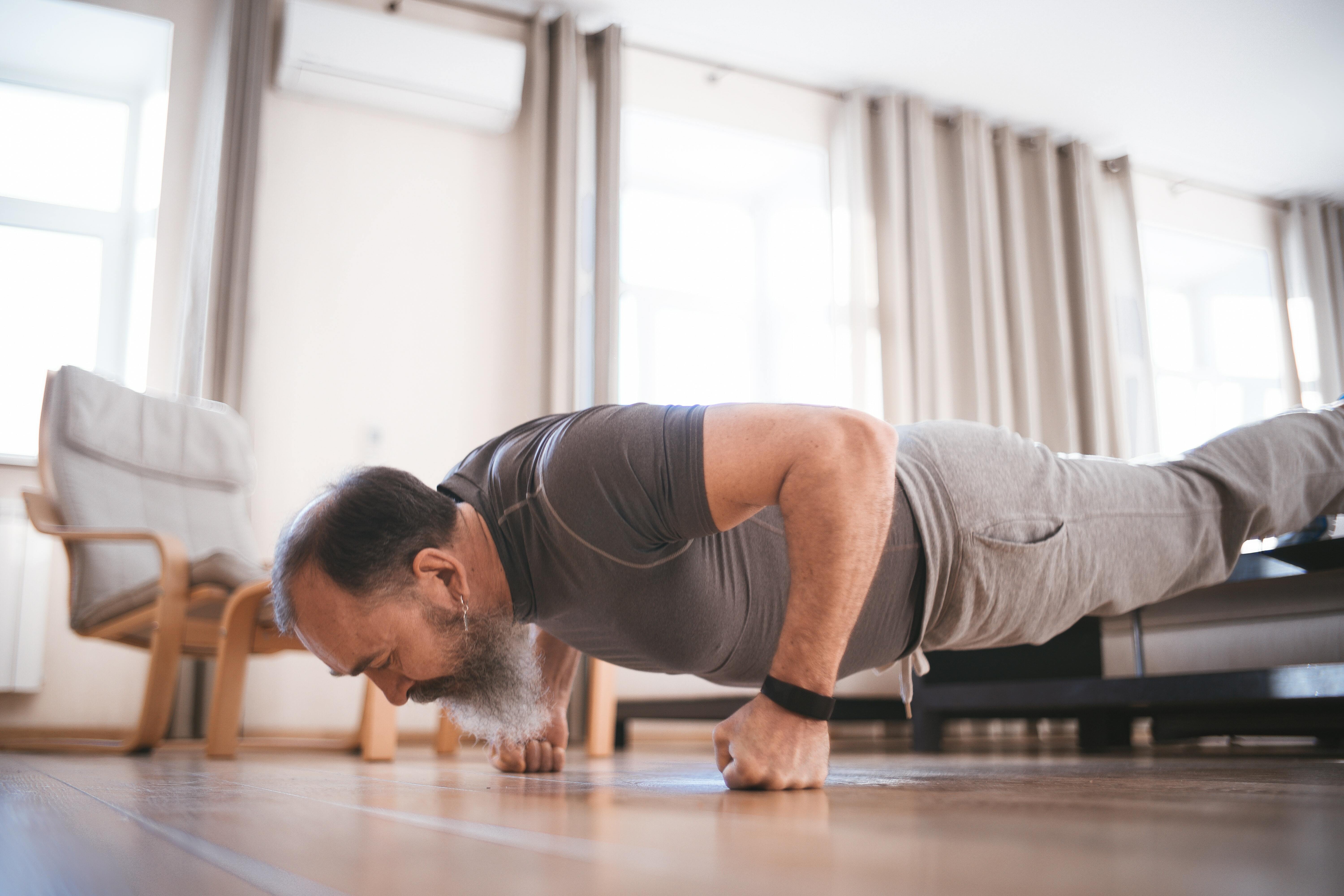
Tuesday 11th July 2023
When less means more
Louise Morse
We hear much about the importance of keeping physically and mentally fit. Perhaps we should look at this through a more faith based lens, because the Scriptures tell us that our bodies are the temples of the Holy Spirit (1 Corinthians 6:19). But many over-sixties are put off by advice that would have us doing things like getting on the floor and doing the ‘plank’. (In my case the word would definitely be ‘plonk’.) Now, from compassionate consultant geriatrician, Dr Lucy Pollock, author of ‘The Book About Getting Older’, comes a shorter, more achievable routine.
Dr Pollock says that the evidence base is that exercises that include both a little bit of strength and balance make a lot of difference. She balances on each leg for one minute while brushing her teeth in the morning. Researchers have found that being able to stand on one leg for 10seconds is an indicator of fitness in middle-aged and older people. Not being able to do so, according to a BMJ report, is associated with an 84 percent heightened risk of death from any cause within the next decade. Being able to stand on one leg is a very good sign, agrees Dr Pollock. ‘It not only improves your strength and balance. It’s a way of checking that everything else you’re doing is making a difference.’
Sixty-second power squats don’t sound too bad, either, but what I really like is the University College of London study that found that exercising at least once every four weeks, ideally through your adult life, is linked to better cognitive function in later life. Many studies have found that speed of movement is an indicator of health in older adults, so having a fast walk at least once a month is a Good Thing.
Less is also more when it comes to our brain-power and mental health.
Several studies show a correlation between disorganisation, clutter, and mental health conditions, including, depression, anxiety, and stress. Messy environments can cause frustration, helplessness, and feeling overwhelmed. Clutter makes our brains tired! When we look at clutter, our brains try to identify the most relevant information that will help us achieve our immediate goals. This information is called the “attentional set.” When our goals change, our brains need to suppress the old attentional set and switch focus to a new attentional set, which consumes brain power.
The more your field of vision is filled with objects that have nothing to do with your goal, the harder your brain has to work to keep each of them out of the attentional set. This can lead to fatigue and may cause us to feel lazy and be less productive than we are capable of being.
On the other hand, if your environment is uncluttered or minimalist, your brain has fewer things to filter through, allowing it to allocate more resources to the task at hand.
Some geniuses are known for working with very cluttered desks. But bright as we are, few of us ordinary mortals would lay claim to genius. So let’s get rid of our clutter, even if it’s just to put it out of sight!
More from Pilgrims' Friend Society

Reimagining care falls to all of us >
Dr Anna Dixon MBE shares the recommendations of the Reimagining Social Care Commission's report

The damaging effect that Ultra processed foods have on our brains >
Research reveals the shocking effect of ultra processed food on our brains

A teaspoon of mustard makes the cholesterol and blood sugar levels go down >
Diabetes UK has warned that 13.6 million people are at increased risk of type 2 diabetes in the UK. Now a new study by Dr Ruth Fairchild of Cardiff Metropolitan University found that in pre-diabetic patients, a heaped teaspoon of wholegrain mustard ingested each evening before bed can help reduce blood glucose and/or cholesterol levels.

Building muscle also builds the brain >
An Australian study has shown for the first time how doing strength exercises slows, or even halts, degeneration in the brain’s hippocampus.


































